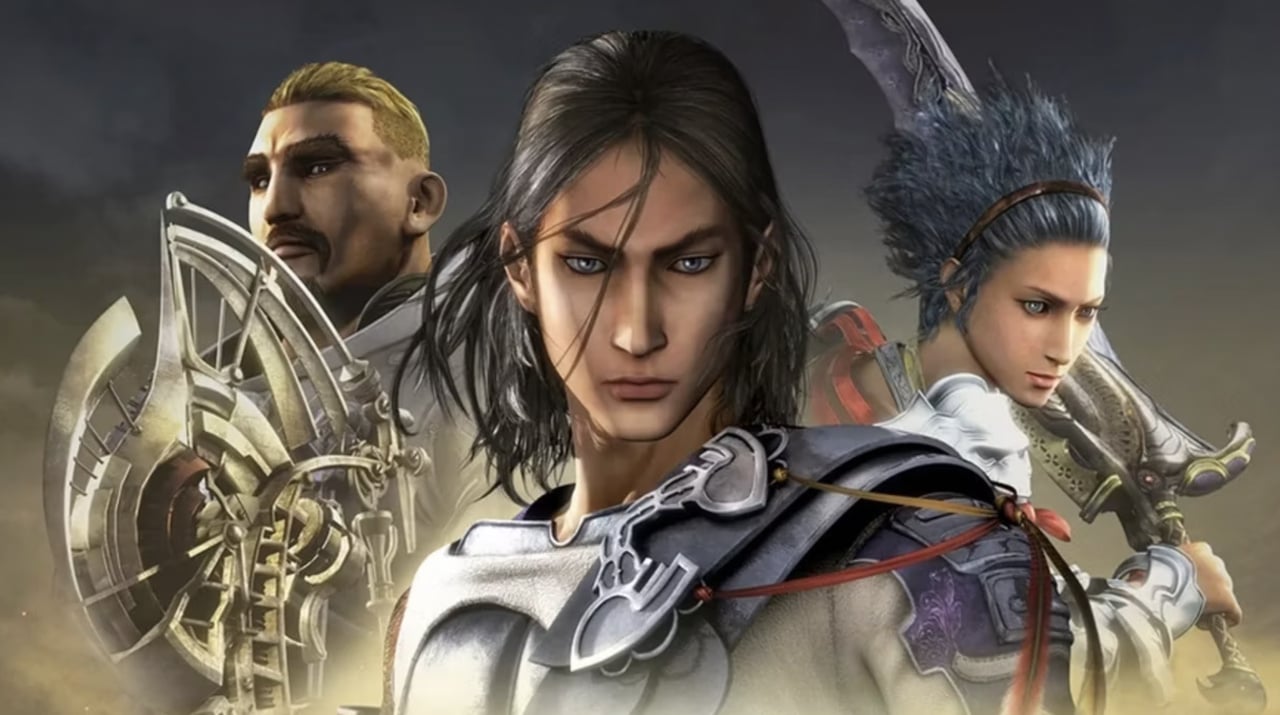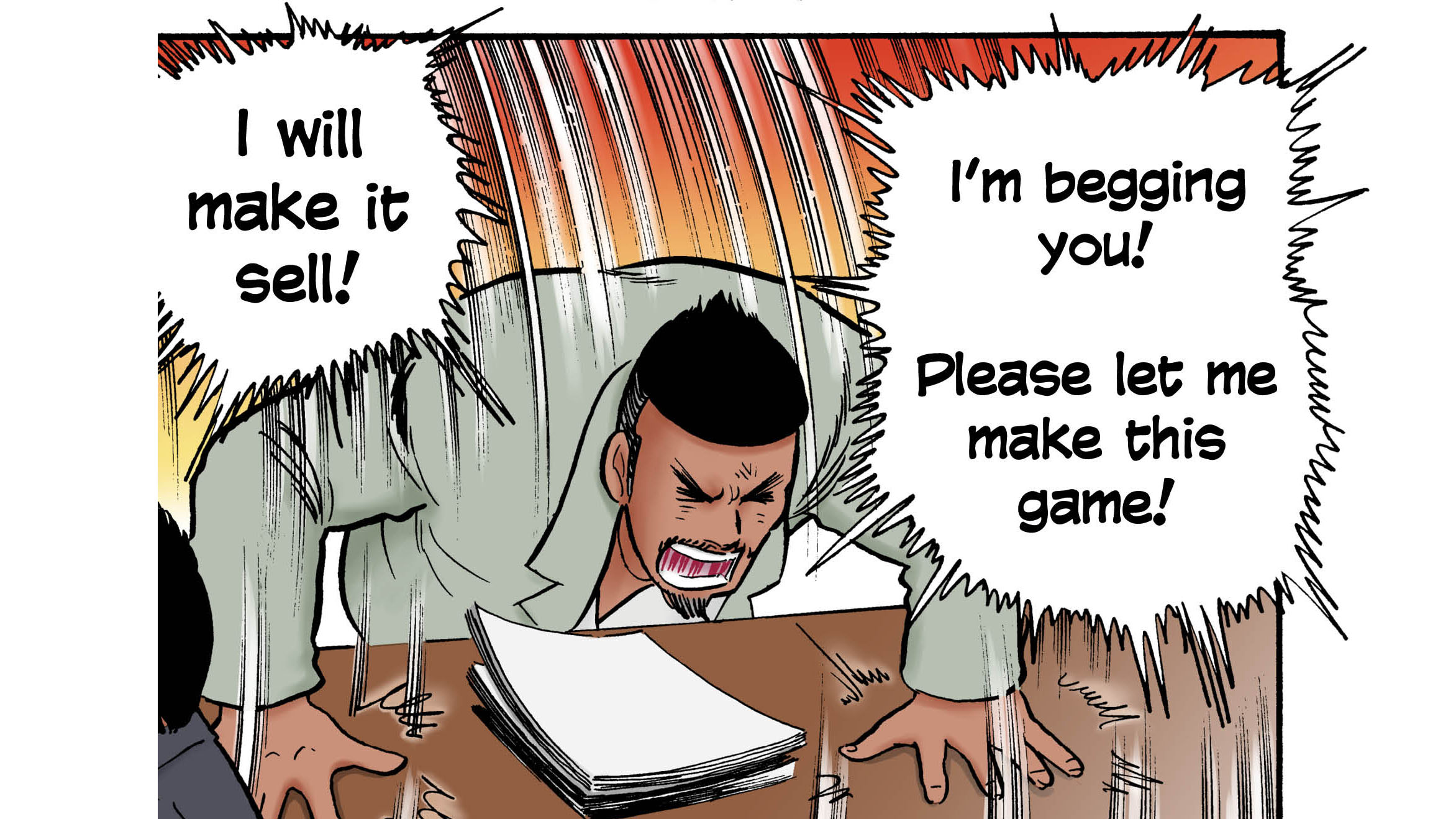Hironobu Sakaguchi and Koji Igarashi discuss how the Japanese gaming scene turned sour, and how it's since revived.
During a panel at the Monaco Anime Game International Conferences 2023 (MAGIC 2023), two legends of the Japanese video game industry looked back on 30 years of history they helped shape. Final Fantasy creator Hironobu Sakaguchi and Castlevania: Symphony of the Night creator Koji Igarashi gave their opinions on how Japanese video games became a worldwide phenomenon, how things went wrong in the early 2000s, and how Japan made a comeback over the last decade.
Sakaguchi said that the release of Dragon Quest in 1986 greatly inspired him. Before Yuji Horii's domestic hit, Sakaguchi believed that developing RPGs for the NES (or Famicom in Japan) would not be possible. The Legend of Zelda, which was released in that same year, was a game he greatly enjoyed as a player, but did not directly inspire him.
"Nintendo and (Shigeru) Miyamoto's games were on another level," Sakaguchi said.
"Mario already kind of had a story," he added. "I think that the story in Zelda was an extension of that. In these games, the story is not the most important component. I personally wanted to make a game in which the story comes first, which is why Dragon Quest felt closer to what I wanted to achieve. The music and systems are of great importance as well, but it is the scenario and story by Yuji Horii that made Dragon Quest special."
For Igarashi, it was quite the opposite. He has previously stated that he was influenced by The Legend of Zelda when creating Castlevania: Symphony of the Night.
"In my games, action is the most important component," said Igarashi. "I think that action games can be compared to boot camp training, as you have to jump and dodge at the exact right moment. Without a purpose it simply becomes a penance, which is why we need to have a story to keep the player motivated. In that regard, the story is definitely important, but it doesn't come first."
If Dragon Quest made RPGs popular in Japan, it was Sakaguchi's Final Fantasy series that made Japanese RPGs popular around the world. Sakaguchi says that while he was happy to see his games gain popularity on the NES and SNES in Japan, he was frustrated to see the games weren't picked up in the Western market.
At the time, people in the West saw pixel art and three-heads-high characters as something for children," Sakaguchi said. "It was frustrating that our games were struggling there, as we wanted to find a way to expand our business. That finally happened when we were able to incorporate CG for Final Fantasy VII."
Final Fantasy became one of the most iconic and popular series on the original PlayStation and PlayStation 2. However, by the time the PlayStation 3 came around, Japanese games started to fade to the background, with the exception of Nintendo.
"I think that one of the main reasons for that is the fact that consoles like the NES and PlayStation were very specific hardware," suggested Sakaguchi. "This made it easier for Japanese developers to master the hardware, as we could ask Nintendo or Sony directly in Japanese. This is why – I realize it might be impolite to say this – Japanese games were of a higher quality at the time. As a result, Japanese games were regarded as more fun, but when hardware became easier to develop for, things quickly changed."
"Japanese developers had been developing skills specifically for console games, but in North America and Europe, there was a long history of PC culture," Igarashi said.
"By the time there was no longer a big difference between developing for console and for PC, Japanese developers could no longer rely on their specialty as console developers, and had to master PC development," said Igarashi, positing that this was the major reason Japanese games started falling behind.
Sakaguchi added: "Many Western gamers grew up playing Japanese games. When games by Western studios started to improve, they felt new and fresh when compared with the Japanese games those players were more familiar with. I believe that in entertainment, freshness is extremely important."
After Sakaguchi left Square and created his own studio, Mistwalker, in 2004, Western RPGs started to overshadow their Japanese counterparts. Series like The Elder Scrolls, Dragon Age and Mass Effect gained massive followings, while Japanese RPGs like Final Fantasy XIII and Sakaguchi's own Blue Dragon failed to attract mainstream audiences in the way they once did. However, Sakaguchi says he never felt it was necessary to derive inspiration from Western RPGs.
"In the West, children often get their own room from a very young age, whilst in Japan the whole family sleeps together in the same room," said Sakaguchi. "I think that such small cultural differences can be felt through the games we make today. Even when Western games became mainstream, I didn't feel the need to be inspired by them. I believe that cherishing my Japanese cultural background is what attracts people towards my games in the first place."
For Igarashi, things are a bit different. Today, the Metroidvania genre he helped create is one of the most popular genres among indie developers, and there are dozens of recent games directly inspired by Castlevania: Symphony of the Night.
"I would like to start by telling everyone to please leave my field!" Igarashi said, jokingly.
"In all seriousness though, I think that it is only natural for works to be inspired by each other. As for games within the genre, I try to play the good ones. More so than me, the director (of Bloodstained) researches these games to see what they do well and learn from their mistakes at the same time. In that regard, I guess I should call [other Metroidvania developers] our friends. We all learn from each other in the hope of creating better games."
Sakaguchi and Igarashi are not the only legendary Japanese developers who left a major development company to become independent. Hideo Kojima, Yu Suzuki and Hidetoshi Nagoshi are only a few examples of the many Japanese talents who have set up their own studios.
"In my case, (at Konami) I wasn't able to make the type of game that I knew fans were waiting for anymore," Igarashi said.
"Mobile games were gaining popularity in Japan," he recalled. "As a company, I think it was the right decision to shift focus. However, as a result it was no longer possible for me to make the same type of games. That's when I heard the voice of a devil inside me telling me to quit. I think that to a greater or lesser extent, the direction of companies and what developers wanted to make started to diverge."
With titles like The Legend of Zelda: Breath of the Wild, Metal Gear Solid V, Elden Ring and Final Fantasy XIV, it is safe to say that Japanese developers are at the forefront of the game industry once again today. That being said, the climate is fundamentally different from the 1980s and '90s. Free engines like Unreal and Unity offer more documentation in English than in Japanese, putting Japanese developers at a disadvantage; and while Nintendo remains a very Japanese company, SIE (Sony's video game division) moved its headquarters from Tokyo, Japan to San Mateo, California in 2016.
"Nintendo is a very creative company," said Sakaguchi. "They want to create games they believe are fun, and Shigeru Miyamoto is still central to that, which in turn is reflected in their marketing. That's why their headquarters need to remain in Japan. Sony (PlayStation), on the other hand, is a much broader company that does business in many different genres. The biggest market is the West, and with their strength in marketing it is natural for them to make that market central."
"The way I see it is that Sony is approaching video games as a more cinematic type of entertainment," said Igarashi. "Of course, they are aiming at the biggest market, but I think they need to be located where the best cinematic entertainment is made. Nintendo, on the other hand, is closer in spirit to a toy manufacturer."
Igarashi said that while he is impressed by the success of modern Japanese titles like Breath of the Wild and Elden Ring, he wants to stay focused on the type of game he does best.
Sakaguchi has been playing so much Final Fantasy XIV that he has found no time to play such titles. Final Fantasy XIV is one of the most noteworthy successes among modern Japanese video games. The MMORPG genre has traditionally been a territory largely dominated by Western developers, but FFXIV has held its own alongside titles such as World Of Warcraft, EVE Online and Everquest.
"As the director (Naoki) Yoshida says himself, FFXIV is like a Final Fantasy theme park," noted Sakaguchi, explaining the reason he thinks Final Fantasy XIV became such a big success. "It seems like an MMORPG on the surface, but in reality it's a bit different. It's a game that celebrates 35 years of characters and worlds from Final Fantasy, similar to something like Disneyland. In that regard, you might even call it a new genre."









/Update%2056/38-051.jpg)















